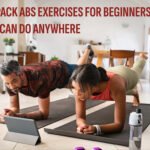The Best Fluffy Pancakes recipe you will fall in love with. Full of tips and tricks to help you make the best pancakes.
The Power of Simplicity: Smarter Exercise and Nutrition Tips from Health Experts
The Power Of Smarter Exercise and Nutrition Tips To Live Healthy & Fit
Have You Ever Had The Feeling That Healthy Living Is Far Too Complicated? It’s No Wonder That So Many Of Us Are Frustrated, Especially When We Face Too Many Diets, Too Many Workout Plans, And Too Much Conflicting Advice At Every Turn. So What If Improving Your Health Didn’t Have To Be A Complete Overhaul Or Jumping On The Next Big Trend? What If It Could Be…Simple?
Picture A Type Of Wellness That Doesn’t Have You Eating Restrictive Diets Or Punishing Workout Regimens, But Rather Small Changes. Here’s The Secret: Consistency, Not Perfection Is The Root Of Real, Lasting Health. The Biggest Rewards Can Come From The Simplest Choices: That Means Picking Fresh Foods Over Processed Options Or Taking A Little More Physical Movement Each Day.
In This Guide, We’ll Remove Ourselves From The Noise And Stay Focused On The Basics Of Nutrition, smarter Exercise, And How A Simple, Flexible Approach Becomes Your Most Powerful Tool. Practical Insights Here Will Help Whether You Are New To Habit Change Or Looking To Refine An Existing Routine; In Either Case, You Will Grow Empowered To Make Sustainable Changes To Your Lifestyle For A Healthier, Happier Life. So Ready To See How Simplicity Can Lead To Real Progress. Let’s Dive In.
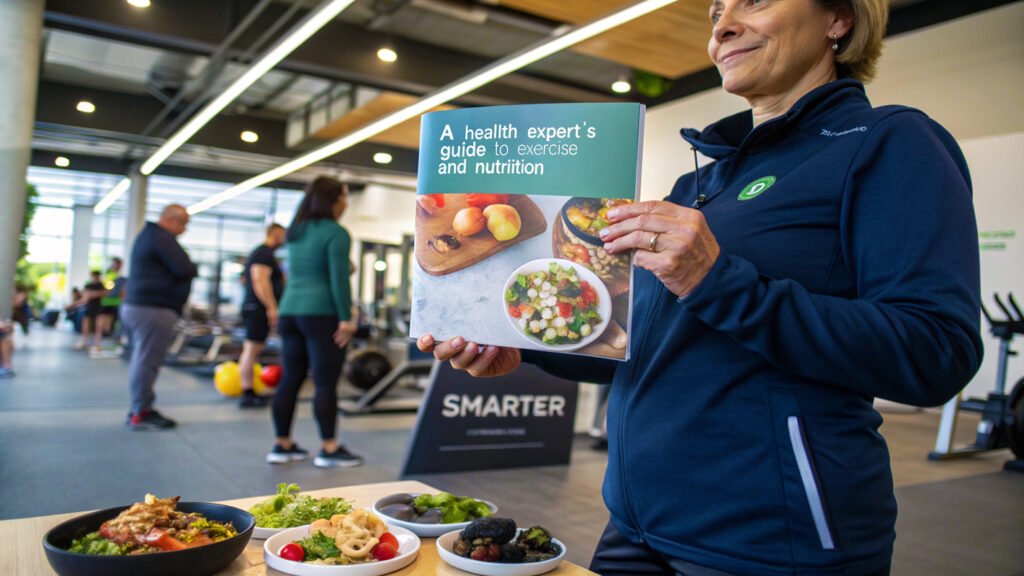
The Downside Of Complexity In Health Trends
Fad Diets And The Cycle Of Frustration
Fad Diets Have Their Appeal, As They Usually Promise Quick Results. Although The Side Effects Are Often Overlooked. Fad Diets Deprive The Body Of Essential Nutrients And Can Cause You To Feel Fatigued, Moody, And Craving. In Addition, When Results Don’t Stick, Folks Feel Frustrated, And In Most Instances, They Feel Even Worse Off Than They Began. “The Great Thing About True Health And Fitness Is It Doesn’t Have To Come From These Extreme Approaches; It Comes From Consistency With Whole Foods And Balanced Meals.
Most Over The Top Smarter Exercise Routines That Don’t Stick
If You Work Out Some People Might Find That High-Intensity Workouts Work For Them But Beginners And Very Busy People Could Be Making Themselves More Work Than Help. When You Push Too Hard, Or Too Fast, You Burn Out Or Get Injured Or You Just Stop Being Motivated. “Far Better And Far More Sustainable” Is A Moderate, Enjoyable Workout Routine Than The Yo-Yo Cycle Of Starting And Stopping Fitness Programs.
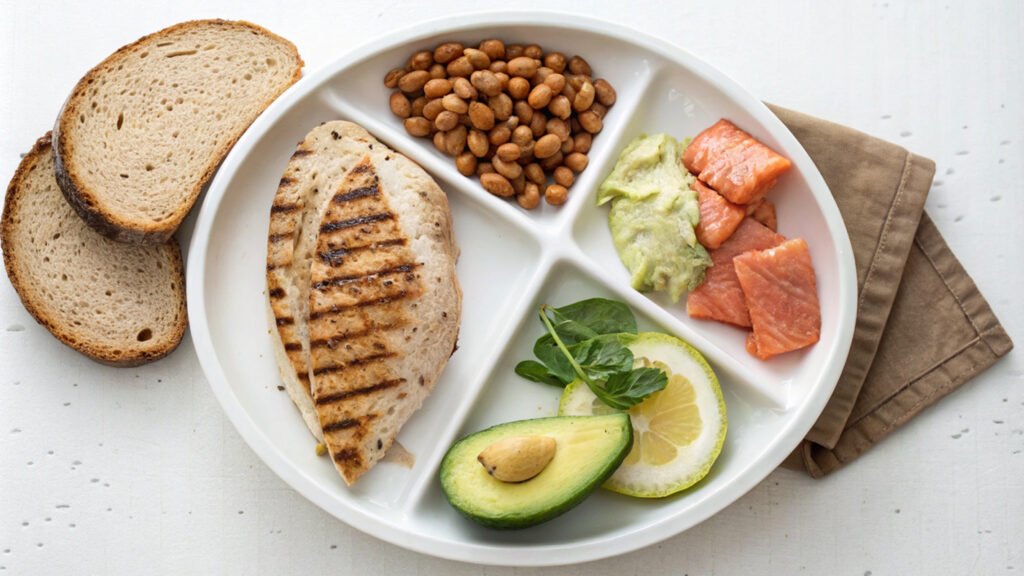
Basics Of Healthy Nutrition
Processed Vs Whole Foods
Whole Foods Are Foods, As Close To Their Natural State As Possible: Fruits, Vegetables, Grains, And Lean Proteins. These Foods Are High In Nutrients, Fiber, And Antioxidants But Low In Added Sugars, Salts, And Unhealthy Fats In Comparison To Much Of The Processed Food Available Today. “Often The Food We Eat Is Processed And Stripped Of Essential Nutrients. Because Of This There Also Aren’t Any Health Benefits From Over Time From The Additives Used To Keep Them Safe To Eat”.
Balanced Meals: Carbs, Protein, And Fats
Because A Balanced Meal Is So Necessary For Your Body To Stay Energized. Carbohydrates Give You Quick Energy, Protein Helps Repair Muscle And Boost Your Immune Function, And Fats Help Your Cells Function And Your Brain Stay Healthy. If You “Include All Three Macronutrients”, You’re Creating A Meal That Satisfies, Energizes, And Nourishes.
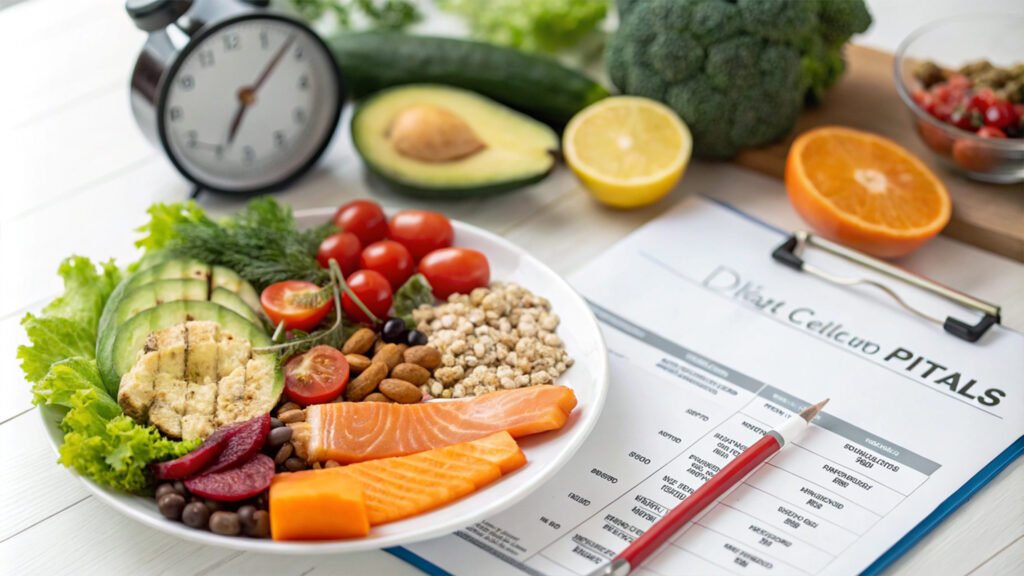
Why “Diet” Has Nothing To Do With Restriction
Diet Culture Pitfalls
It’s A Common Misconception That “Diet” Is A Form Of Restriction. Instead Of Writing ‘Diet,’ Think Of ‘Diet’ As “A Way To Give Your Body The Fuel It Needs For Thriving.” We Feel More Satisfied And Energized When We Are Thinking About Eating Naturally Nutrient-Rich Foods Rather Than Being Afraid Of Foods.
Beat Extreme Diets With Small Changes
One Strength Of Extreme Diets Is That Often, They Require A Complete Overhaul Of A Person’s Entire Lifestyle. However, You Can Make Healthy Habits That Will Actually Stick, Simply By Making Small Adjustments, Such As Adding An Extra Serving Of Vegetables With Each Meal Or Drinking An Extra Glass Of Water A Day. A Full-Scale Diet Is Just Too Much To Handle And ‘These Small Shifts Are Easier To Stick With And Don’t Feel As Restrictive”.
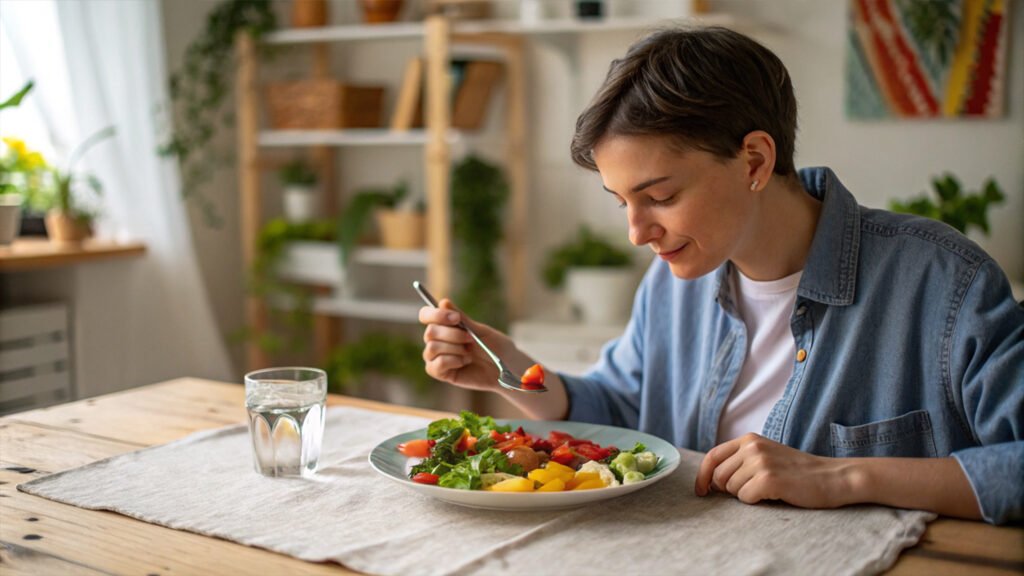
Better Eating Habits With Small Changes
Mindful Eating Practices
Mindful Eating Is Simply Paying Attention To What You’re Eating And How You’re Eating It. It’s Not About Racing To Finish Meals, But Rather Taking The Time To Appreciate Each Mouthful, Make Note Of Textural Qualities, And Sense When Enough Has Been Eaten. “By Practicing This You Avoid Overeating, Help With Digestion, And Eat Your Food Better”.
Simple Swaps That Make A Difference
Over Time, Replacing Less Healthy Ingredients With Better Ones Can Produce Big Results. For Example, Substitute Whole Grain Bread For White Bread Or Drink Undrunk Water Or Herbal Teas Instead Of Sugary Drinks. “These Small Changes Give You Added Nutrients Without It Feeling Like You’re Going On A Diet”.
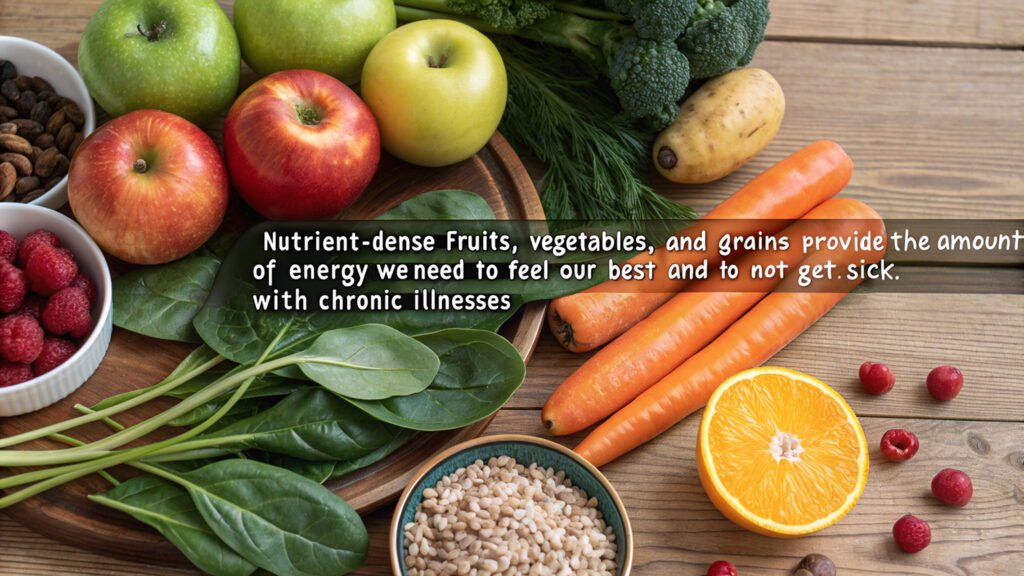
The Importance Of Movement Over “Smarter Exercise”
Walking And Everyday Activity
Structured Smarter Exercise Isn’t The Only Way To Be Active. “Every Movement Really Does Count—Take Short Walks, Use Stairs, Stretch When You’re At Your Desk—It All Adds Up” To Support Your Health.
Strength Training For Everyone: Basic Versions Of Strength Training.
Lifting Can’t Be Brutal And Weird. And It Doesn’t Have To Be In The Fitness Center, There Are Plenty Of Simple Bodyweight Smarter Exercise Such As Squats, Push-Ups, And Lunges Which You Can Do Anywhere And Have Great Health Benefits. “Muscle Building Is Important To Metabolism And Mobility As We Age” And Strength Smarter Exercise Keep Muscle Building.
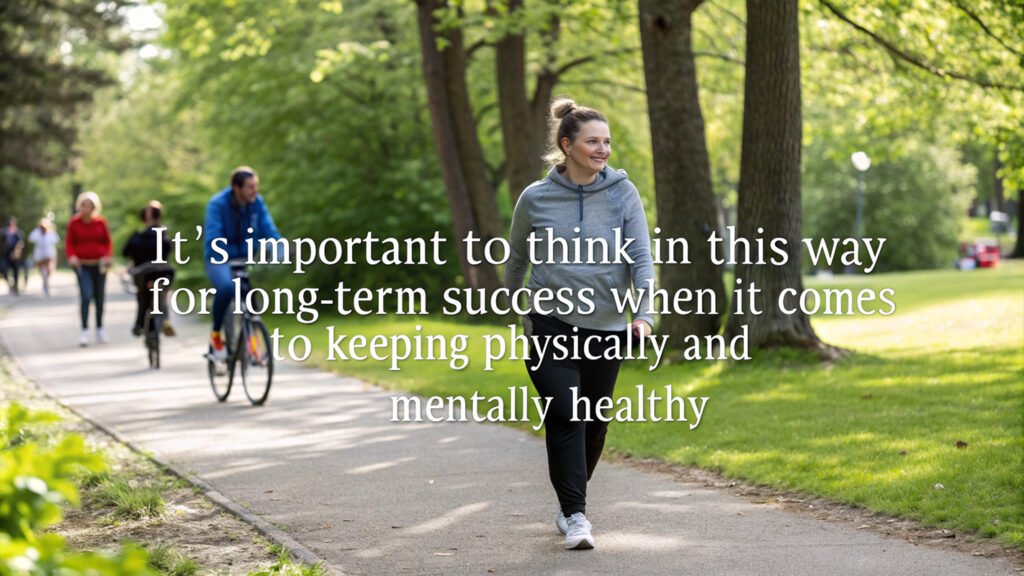
How To Build A Sustainable Fitness Routine
Starting With Realistic Goals
While Working Out An Hour Every Day Sounds Good In Theory, For Many That Goal Is Too Big To Achieve. Work Your Way Up To A Manageable Goal – 15 Minutes A Couple Of Times A Week And Increase As You’re Ready. “Goals That Are Realistic Are More Accessible, And They’re An Inspiration That Adds To Positive Momentum”.
Intensive Progression Over Time
After You’ve Created A Routine, Ramp It Up Incrementally: Extend Or Bump Up The Epoch In Terms Of Speed Or Discomfort. This Progression Not Only Prevents Boredom But Also “Helps You Build Strength And Stamina” Over Time Without Overwhelming Yourself.

Consistency Beats Intensity
The Long-Term Approach To Improving Health.
It’s Not Something You Can Do In One Day Or One Week; It’s A Life Commitment To Your Own Health. Don’t List All And Subsequently Burn Out But Strive To See Small Steady Progress. “Consistent Effort Is What Builds Habits That Stick, And End Up Being Habits For You To Live Your Life By”.
Learning Keeping It A Lifestyle, Not A Phase.
Instead Of Thinking Of Health As What You ‘Do’ For A Few Weeks, Conceive It As A Lifestyle. A Healthy Lifestyle Encompasses Small Enjoyable Things That Don’t Feel Like Work. “It’s Important To Think In This Way For Long-Term Success When It Comes To Keeping Physically And Mentally Healthy”.
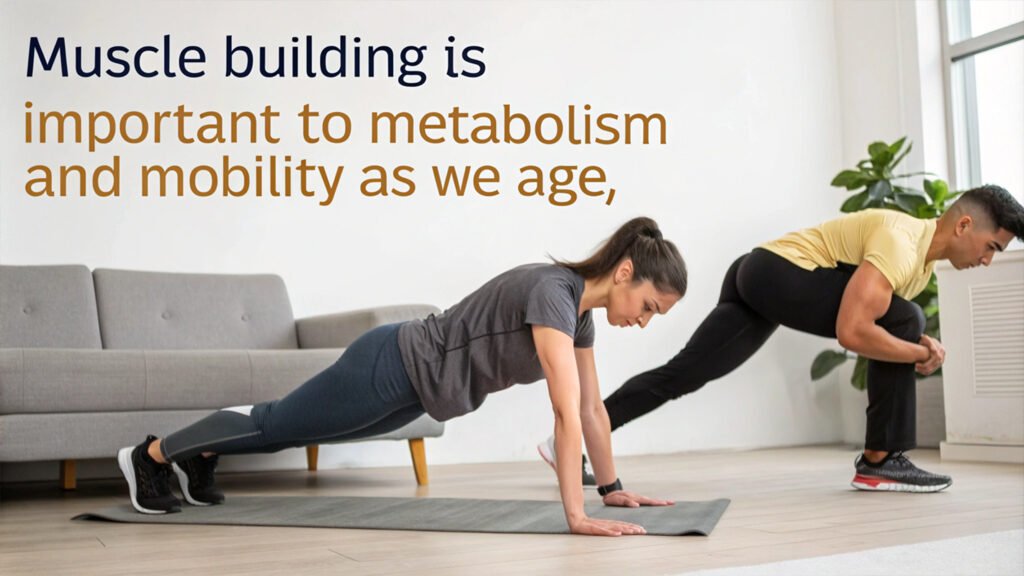
Taking The Trap Of A ‘Quick Fix’ Solution
Why Shortcuts Don’t Work
Either They’re Quick Fixes That Lead To Temporary Results Or They’re Changes That Should Have Been Implemented Long Ago. Whether It’s A Restrictive Diet, Or A “Miracle” Supplement, The Effects Never Last For Very Long, And People Usually Wind Up Back Where They Started. “Solutions Short Term Does Not Lead To Real Health Changes, Just Consistency And Time”.
What’s Needed For Long-Term Success With A Mindset Shift
Instead Of Speed, Concentrate On Things That Aren’t Going To Break. This Shift Makes It Possible To Adopt “Healthy Habits You Can Live With”, So “Healthy Becomes Part Of Your Daily Life”.

Healthy Eating: Focus On Whole Foods
Fruits, Vegetables, And Grains Have Benefits.
But Whole Foods Are Important As They Supply Us With Essential Vitamins, Minerals, And Antioxidants That Keep Us Healthy. “Nutrient-Dense Fruits, Vegetables, And Grains Provide The Amount Of Energy We Need To Feel Our Best And To Not Get Sick With Chronic Illnesses”.
Essentials Of Protein And Healthy Fats
For Cell Health, Brain Function, And Energy, Protein And Healthy Fats Are Crucial. Lean Meats, Fish, Nuts, And Seeds All Stock The Body With What It Needs To Repair And Regenerate. “Eating These Foods Helps You Have A Balanced And Healthy Body”.
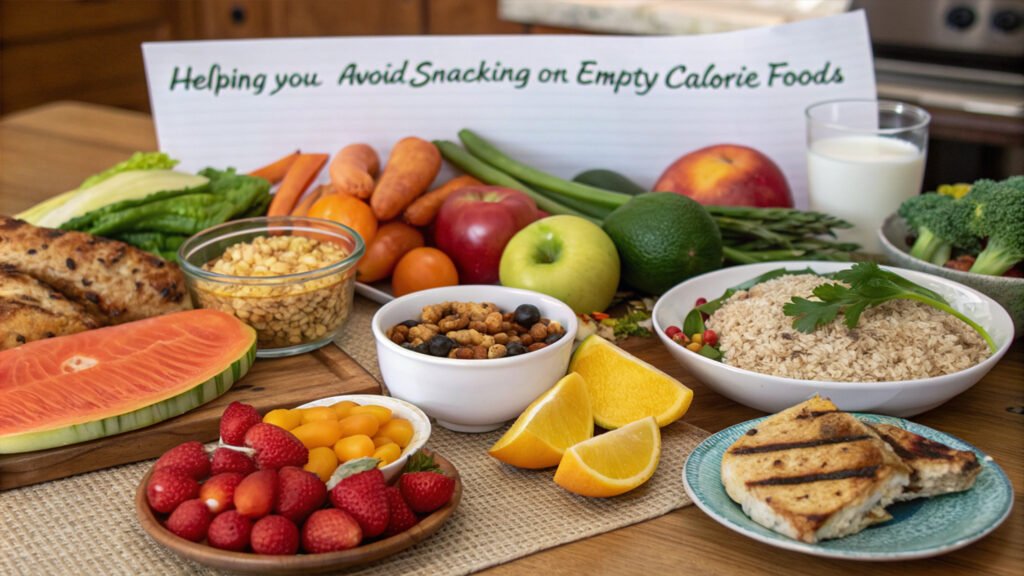
Grocery Shopping Practical Tips
Reading Labels Wisely
Check Ingredient Lists When You Shop. Pick Items With Simple Ingredients You Know And Are Familiar With And Steer Clear Of Those With Extra Sugars Or Unhealthy Fats. “Labels Help You Make Informed Choices And Smarter Exercise Your Rights To Support Your Health”.
Making Nutrient-Rich Choices
Instead, Choose Whole, Unprocessed Foods Like Fresh Produce, Whole Grains, And Lean Proteins. The Advantage Of These Options Is That They Contain More Nutrients Per Calorie And Will Keep You Fuller Longer, “Helping You Avoid Snacking On Empty Calorie Foods”.

Physical Health And Mental Health…What Is Their Connection?
Mind-Body Connection
Our Mental And Physical Health Are Inseparable. The Fact Is That When We’re Stressed Or Anxious, It Can Chip Away At Our Motivation To Smarter Exercise And To Eat Well. Mindfulness Or Journaling Helps To Take Care Of Our Mind And In Turn Is Good For Our Physical Health Too.
The Impacts Of Nutrition And Smarter Exercise On Stress
Cravings For Comfort Food, Disrupting Sleep, As Well As Decreasing Motivation To Smarter Exercise Can Follow Stress. “Relaxation Increases Or Hobbies To Manage Stress Helps Promote A Balanced Lifestyle; Being Better Able To Maintain Healthy Habits”.

Keeping Busy All Day Long
The Benefits Of Frequent Movement
It’s Rumored That Sitting For Long Periods Can Be Bad For Our Health. Moving Around All Day Keeps Circulation Down, Helps Maintain Flexibility, And Increases Energy Levels. “Movement Prevents Fatigue And Stiffness, And Makes For A More Active, Engaged Human Being”.
Including Short Activities Into Routines
Include Small Spurts Of Activity — Stepping Up The Occasional Stairs On Your Way To The Office, A Few Desk Stretches, Or Standing For Five Minutes. “All Those Mini Movements Add Up And Power Up Your Energy Levels So You Stay More Energy Steady Throughout The Day”.
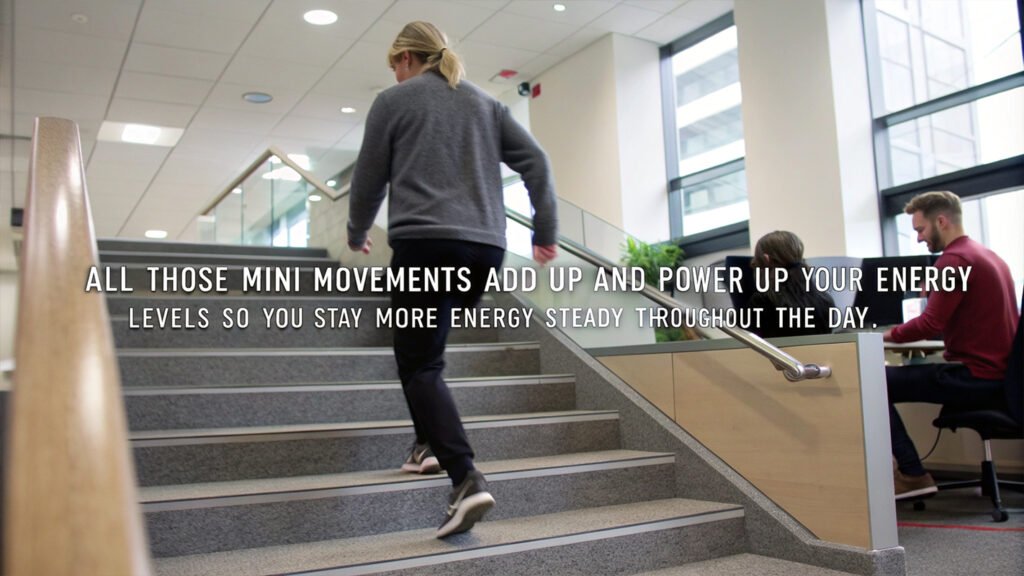
How To Create Change Using Simple Habits
How Habits Build Over Time
As Time Passes By, Habits Become Bigger And Bigger. Change Doesn’t Have To Happen Overnight; Concentrate On One Or Two Habits At A Time, Until They Become Part Of Your Routine. “Compound Is A Really Powerful Concept — Small Habits Compound Greatly Over The Long Term”.
How To Overcome The All Or Nothing Mindset.
We Also Think That It’s A Bust Unless Everything Is Perfect. Health Is Not About All In Or All Out. Progress Over Perfection Helps Us To Overlook Pressure And To Accept The Idea Of Slow Improvement.

Conclusion: Making Simplicity Your Way To Lasting Health
There Are So Many Health Trends And Wellness Advice, We Can Feel Prone With. But Here’s The Truth: What You Don’t Have To Do To Experience Real, Lasting Health Is Chase Extremes. Imagine If What We’re Looking For In The Answer To What Gives Us Energy, And How We Feel Stronger And Better Isn’t A New Fad Diet Or The Most Extreme Workout. What If It’s About Making Small, Intentional Choices That Are Aligned With Your Lifestyle? It’s The Beauty Of Simplicity. It’s Straightforward, Highly Approachable, And Hopefully, Above All, Ultimately Transformative.
It’s About Choosing Whole Foods Over Processed, Or A Brisk Walk Instead Of An Exhausting Workout. While They’re Not Easy, They Do Make For Very Empowering Choices. What They Are Reminding Us, They Tell Us That Health Isn’t About Restriction Or Perfection, It Is About Balance And Consistency.
When You Step Away From The Complexity And Get To The Simple Actionable Steps, Fitness And Nutrition Will Be Far More Enjoyable But You Will Also Be In The Best Position For Long-Term Success. While Doing So, You’re Also Building Habits That, Over Time, Will Help You Get Through The Good And The Bad With No Feeling Of A Chore.
So, As You Move Forward On Your Health Journey, Ask Yourself: Do You Settings Up To Live A Better Life? Can They Be Flexible Enough To Fit Into Your Lifestyle? When We Create The Simplest Of The Simple As Our Health Goals, We’re Not Only Working To Change Our Bodies, We’re Working To Elevate Our Quality Of Life.
*Be Consistent And Happy With Your Journey To Health, And Take It One Step At A Time, Keep It Simple.* After All, What Happens Today As Small Changes Lay The Building Blocks Of Tomorrow’s Healthier And Happier You.
FAQs
1. What Can I Eat Without A Real Diet?
Eat Whole Foods And Avoid The Highly Processed Stuff. Very Small Changes Like Changing To Drinking More Water, Or Substituting Refined Grains For Whole Grains Together Make A Significant Difference.
2. Why Are Processed Foods Bad For You?
The Foods That Are Processed Often Have Added Sugars, Unhealthy Fats, And Preservatives. These Can Cause Weight Gain And Cause Health Problems If Allowed To Over Time.
3. Then What Is The Best Way To Start A Fitness Routine?
Do Your Movements First, Walking Or Some Simple Bodyweight Smarter Exercise, But Try To Increase The Intensity.
4. What Does Good Mental Health Mean For Physical Health?
Mental Health Plays A Role In Motivation, Energy, And Eating As Stress Management And Mindfulness For Mind And Body.
5. But Is Strength Training Necessary?
Strength Training Does Two Things: It Encourages And Maintains Muscle, Increases Metabolism, And Improves General Mobility.


